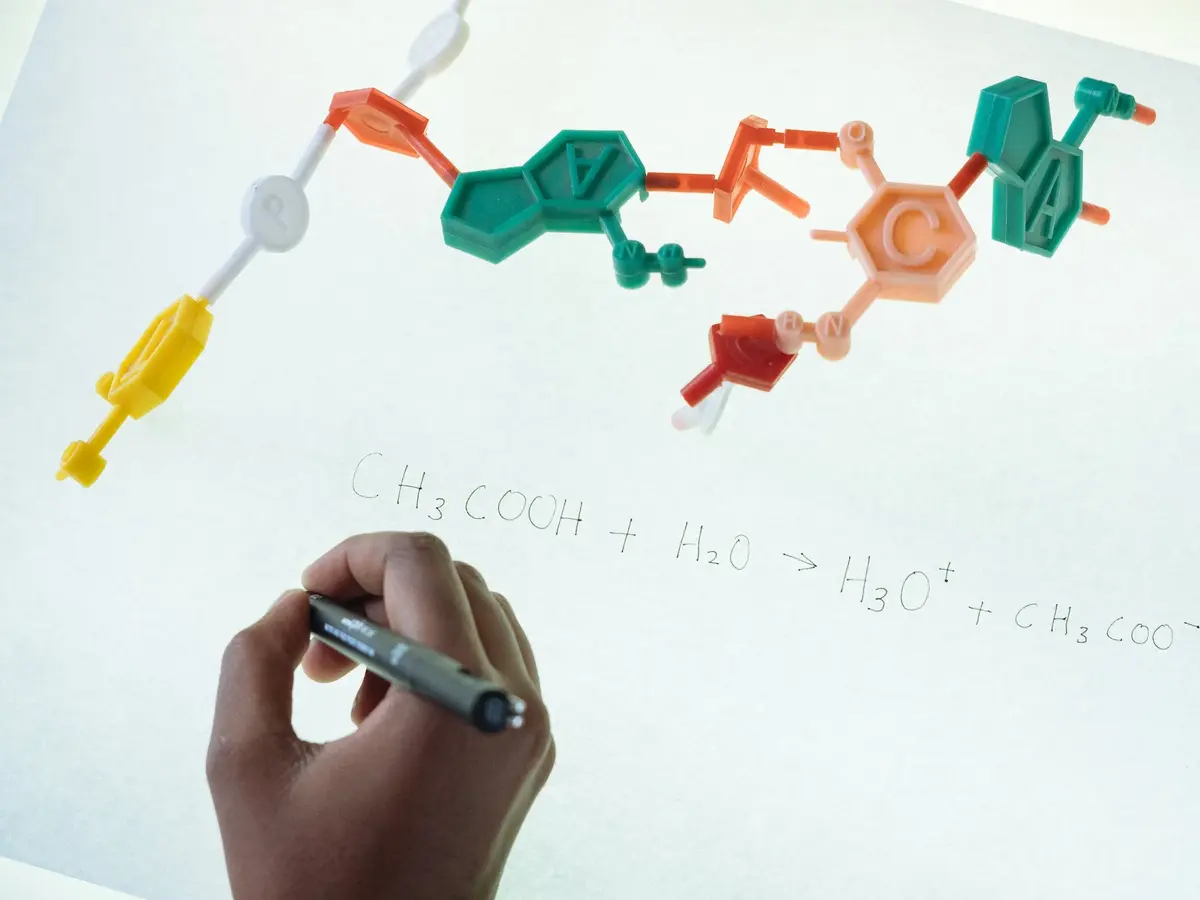The main difference between biochemistry vs molecular biology is, in biochemistry we study the chemical processes within living organisms, but in molecular biology we study the structure, function and interactions of biological molecules.
What are the differences between biochemistry vs molecular biology?
| Biochemistry | Molecular biology |
| Study the chemical processes in living organisms. | Study the chemicals in molecular levels of biological processes. |
| We can learn chemical composition and reactions. | We can explore DNA, RNA, proteins and their interactions. |
| Emphasizes metabolism, pathways and enzymology. | Emphasizes genetic information and cellular functions. |
| Techniques like spectroscopy, chromatography are used here. | Involves techniques such as PCR, DNA sequencing and gene expression analysis. |
| Applied in drug development and enzymology. | Applied in genetics, genomics, biotechnology, and molecular medicine. |
| Expert in biochemistry called biochemist. | Expert in molecular biology called molecular biologist. |
What is biochemistry?
It is a branch of science where we can study chemicals and their reactions within living organisms such as plants, animals and microorganisms.
Chemicals which are present in living cell are studied in biochemistry these chemicals or molecules are known as biomolecules.
In living organisms, 4 types of major biomolecules are present. Those are carbohydrate, proteins, lipids or fats and nucleic acids. These biomolecules are also known as macromolecules, because they are present in living organisms in large amount.
Carbohydrates: These are the organic compounds with a 1:2:1 ratio of C, H, O.
Proteins: These are complex macromolecules made of amino acids. They contain carbon (50-55%), hydrogen (6-7.3%), oxygen (19-24%), nitrogen (13-19%) and sulphur (0-4%).
Lipids or fats: These are hydrophobic molecules and insoluble in water. They are mainly composed of fatty acids and glycerol molecules.
Nucleic acids: These are polymers of nucleotides that store genetic information. They include DNA and RNA.
What is molecular biology?
Molecular biology is a branch science that focuses on the study of the molecular processes and mechanisms within living organisms.
It involves the analysis of the structure and function of biological macromolecules, such as DNA, RNA, proteins and their interactions.
Nucleic acids and proteins, these are two key molecules in molecular biology.
Some techniques like PCR, DNA sequencing and gene expression analysis are used in molecular biology.
What are the similarities between biochemistry and molecular biology?
Both fields are branches of science that focus on the study of living organisms.
They share the fundamental processes that occur within cells.
Biochemistry and molecular biology both explore the structure and function of biological molecules, such as DNA, RNA, proteins and lipids.
Both fields contribute to advancements in medicine, genetics, and biotechnology.
They are interconnected together to provide some knowledge about biological systems.
Key differences between the biochemistry and molecular biology
Type of study
- Biochemistry studies the chemicals and their reactions within living organisms.
- Molecular biology studies the chemicals at molecular levels.
Biomolecules
- In biochemistry mainly we study the carbohydrates, proteins, lipids and nucleic acids.
- But in molecular biology include mainly 2 key molecules such as nucleic acids and proteins.
Techniques
- Techniques of biochemistry include protein purification, perfusion, homogenization, centrifugation, enzyme assays, protein assays, chromatography, protein crystallography, enzyme kinetics, spectroscopy etc.
- Techniques of molecular biology include PCR, gel electrophoresis, PCR, DNA sequencing and gene expression analysis etc.
Also read What are differences between biology vs biochemistry? What are the differences between biochemistry vs microbiology?
FAQ’s
What is the main difference between molecular biology and biochemistry?
The main difference is that molecular biology focuses on studying biological molecules and their interactions at the molecular level. But biochemistry focuses the chemical processes within living organisms.
Is biochemistry and molecular biology same?
No, biochemistry and molecular biology are related fields but not the same. Biochemistry focuses on the chemical processes within living organisms, while molecular biology involves the study of biological molecules and their interactions within cells.
What is PCR technique in molecular biology?
Polymerase chain reaction is technique used to amplify and replicate DNA in vitro. It enables the production of large quantities of specific DNA segments for various applications, such as DNA sequencing and genetic analysis.
What is DNA sequencing in molecular biology?
It is the process of determining the exact order of DNA building blocks (adenine, thymine, cytosine, and guanine) in a DNA molecule. It is used to determine the genetic information.
What are the techniques using in biochemistry?
Protein purification, perfusion, homogenization, centrifugation, enzyme assays, protein assays, chromatography, protein crystallography, enzyme kinetics, spectroscopy etc.
What are the techniques using in molecular biology?
Some molecular biology techniques are PCR, gel electrophoresis, PCR, DNA sequencing and gene expression analysis etc.
What do mean by gene expression in molecular biology?
Gene expression refers to the process by which information from a gene is used to synthesize a functional gene product. For example, proteins and RNA which are influences functions of an organism.
Is biochemistry and molecular biology same degree?
Biochemistry and molecular biology are separate degree programs. Each branch focuses on different aspects of the molecular study of living organisms.
Also read What is Biochemistry?

